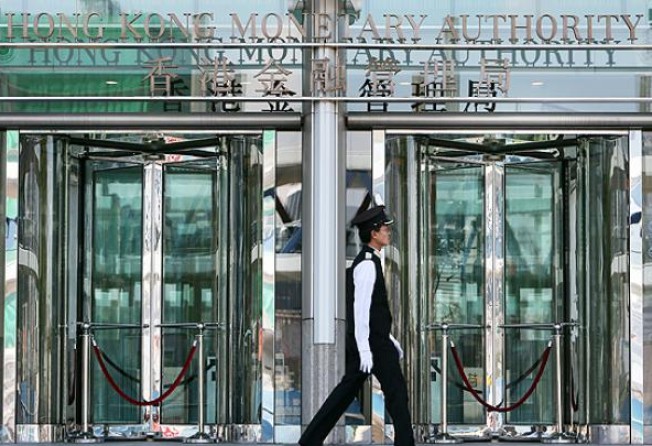HKMA intervenes again to weaken Hong Kong dollar

The Hong Kong Monetary Authority (HKMA) intervened in the currency market four times since October 19, selling a total HK$14.4 billion (US$1.85 billion) of Hong Kong dollars to protect its 29-year-old peg to the US dollar.
The capital inflows are a result of quantitative easing in the United States and have prompted concerns over inflation in the city as investors seek opportunities in Hong Kong and China, pushing up asset prices in areas such as property.
“We expect net inflows into the Hong Kong dollar will continue for sometime,” the city’s central bank said on Wednesday.
In its fourth intervention in less than a week, the HKMA sold US$395 million worth of Hong Kong dollars on Wednesday, as the local currency hit the upper limit of its peg to the US dollar of 7.75.
The latest intervention will lift the aggregate balance – the sum of balances on clearing accounts maintained by banks with the HKMA – to HK$163 billion on October 25, according to Reuters data.
Chan Ka-keung, Hong Kong’s Secretary for Financial Services and Treasury, told reporters on Wednesday that fund inflows to Asian markets were partly stimulated by some data showing improvements in China’s economy.
The HKMA’s last series of interventions took place between the fourth quarter of 2008 and the end of 2009, following the collapse of Lehman Brothers, when the central bank sold HK$640 billion into the market.
The injection of a large amount of Hong Kong dollars into the financial system is likely to further fuel property prices, which are among the highest in the world and stand at levels well beyond the reach of many of the city’s more than seven million residents.
In September, Hong Kong ordered banks to curb home loans to borrowers with more than one mortgage to prevent the city being flooded with hot money following the United States’ aggressive new stimulus plan to spur growth.
The Centa-City leading index (CCL), which evaluates secondary private residential property prices in Hong Kong, rose 2.79 per cent to 111.19 during the week of October 8-14 from the previous month, which was well above the peak in 1997.
The prospect of fund flows returning to Hong Kong have also sparked a near 10 per cent rally so far this month in shares of Hong Kong Exchanges & Clearing, the world’s No 2 exchange operator by market value.
Strength in the Hong Kong dollar has reignited speculation that its peg to the US dollar, which has been in place since 1983, will be abolished, although some market watchers shrugged this off.
“Regardless of recent flows, I continue to believe the HKD peg to the USD will persist since the system keeps the currency and economy stable and there will also be shortcomings if the HKD is pegged to other currencies,” said Adrienne Lui at Citi Group.
The Chinese yuan is not fully convertible which means it is not an option for the HKD to be pegged to it now, but in the longer term, after the yuan capital account is fully liberalised, it could be an option, she added.
The Hong Kong dollar can trade between 7.75 and 7.85. Under the currency peg, the HKMA is obliged to intervene when the Hong Kong dollar hits 7.75 or 7.85 to keep the band intact.
The Hong Kong government recently reiterated its commitment to the peg, with Financial Secretary John Tsang Chun-wah saying in June that “the linked exchange rate is most suitable for Hong Kong and there’s no need whatsoever to make any change”.
Some analysts expected the strength in the Hong Kong dollar to continue in the short term, with Lui expecting it to stay near 7.75 over the next three months and prompting more interventions.